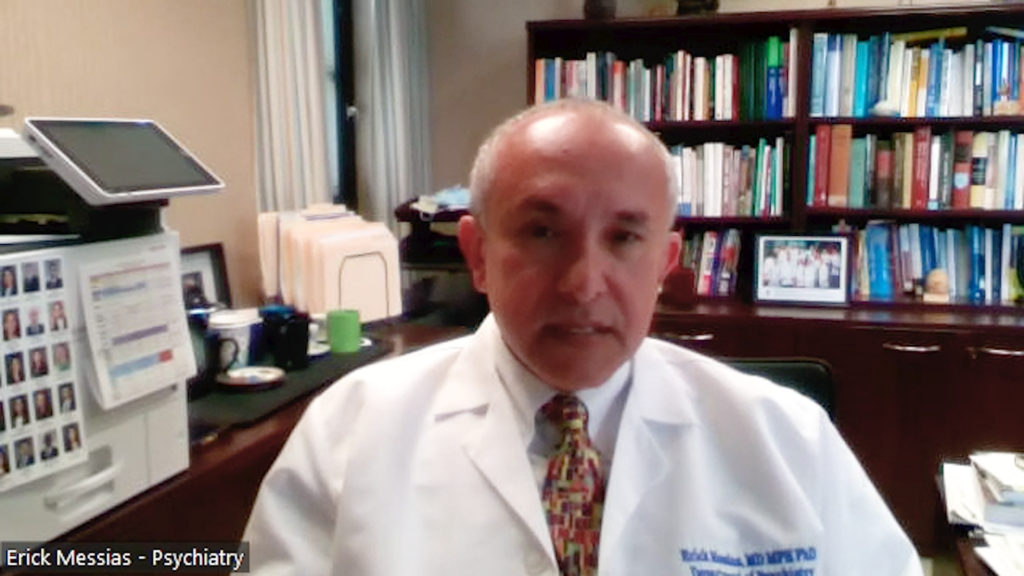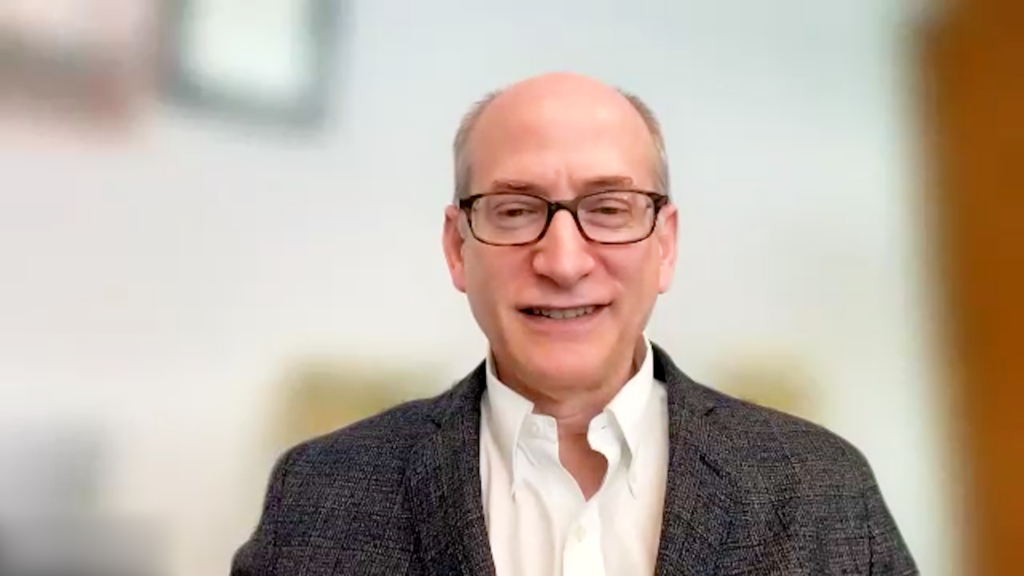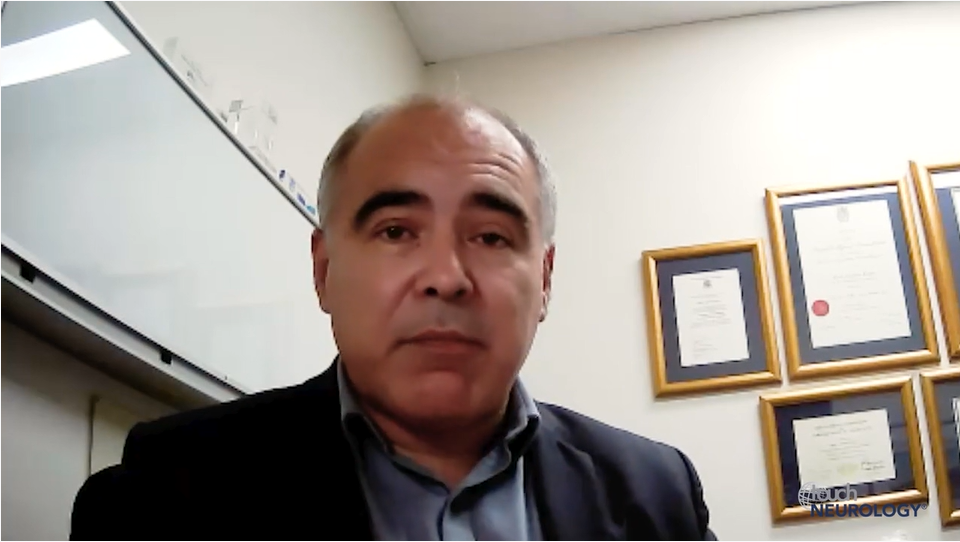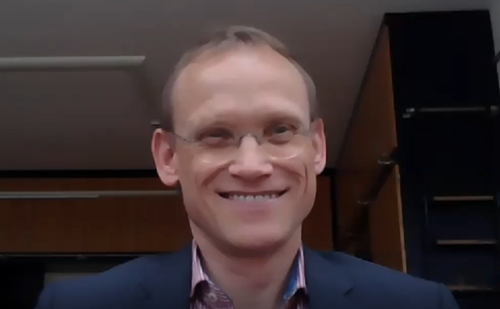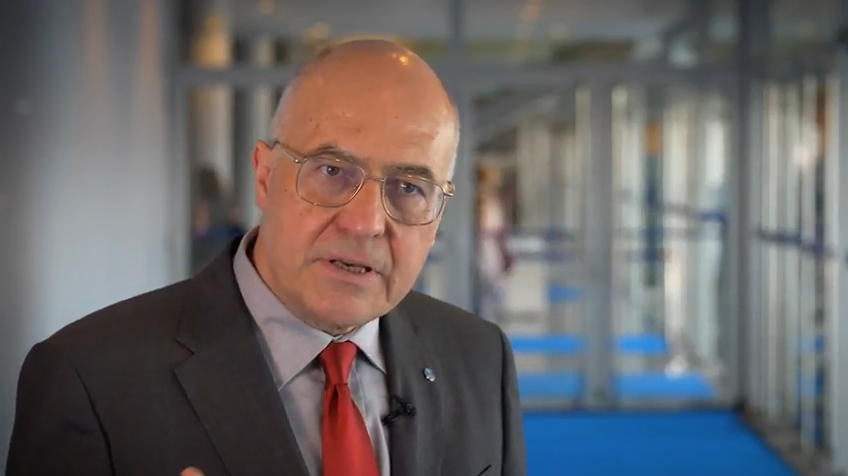Implementing positive psychiatry approaches can face various barriers across different levels of care. These include resistance to change, limited resources, time constraints, and the dominance of a deficit-focused model. In this touchNEUROLOGY interview, we speak with Dr Erick Messias (Saint Louis University School of Medicine, St. Louis, MO, USA) to discuss how to address these challenges through education and training for healthcare professionals, integrating positive psychiatry into existing treatment frameworks, and promoting a cultural shift towards a strengths-based approach in mental healthcare systems.
The abstract entitled ‘Novel Positive Psychiatry Interventions: Helping Patients, Professionals, and Populations’ was presented at the American Psychiatric Association, 20-24 May 2023, San Francisco, CA, USA.
Questions:
- Can you give a brief overview of tools or techniques developed within positive psychiatry to support the adoption of a positive orientation, harnessing strengths, mobilizing values, cultivating social connections, and optimizing healthy habits? (0:20)
- What barriers or challenges might arise when implementing positive approaches at different levels of care, and how can these be addressed? (3:55)
Disclosures: Erick Messias has nothing to disclose in relation to this video interview.
Support: Interview and filming supported by Touch Medical Media. Interview conducted by Katey Gabrysch.
Filmed as a highlight of APA 2023
Access more content on psychiatric disorders
Transcript
Can you give a brief overview of tools or techniques developed within positive psychiatry to support the adoption of a positive orientation, harnessing strengths, mobilizing values, cultivating social connections, and optimizing healthy habits? (0:20)
So actually, my colleague, Samatha Broadman from New York, she has five different suggestions on how we can incorporate positive practices to our everyday work. So the first is to develop a positive orientation. So a positive orientation has to do with, you know, not only talking about what are your problems, what are your symptoms, but what are your strengths, and what can you do about it. A lot of examples are gratitude exercises, positive affirmations and all that. One example of positive affirmations is something that our colleagues in suicide prevention have developed, which is an approach to reasons to live. So they talk about, what are your reasons to live? And they talk about this even for patients who are suicidal and who have lost, at the time, the reason to live and they talk about it and develop even small cards that people can keep of what are my reasons for living. They can be put on a refrigerator or carried with them, and it has been shown to decrease suicide attempts over time. So those are positive orientations. Even at the darkest moment, like suicide, we can still have a positive orientations about about how to approach patients. The second, there is something called the virtual inaction survey or assessment (VIA) and if you look for the VIA assessment, it’s free, everybody can do it. And they will assess what are your top strengths. They have a list of twenty four strengths, and you can you can run the test, run the assessment, and see what are your top strengths and you should practice them. You should practice your strengths. There are value based interventions, which is talk to people about what what their values are. Some people, their values are around family, some are around their beliefs and their religion, some are about keeping a healthy body and keeping a healthy life. Some people’s values are wrapped in their profession, in their career. So we need to understand where people are and see how they can build a life around the values that they value. Finally, you know, she talks about social connections, which is Dilip talked about social prescribing. So, I got into the habit of prescribing walks to my patients, but Dilip talks about prescribing talking to somebody, prescribing going to a library and try to find a conversation or join a book club – so the doctor is prescribing social connections. Finally, healthy habits. Healthy habits include sleep, exercise. Again, spending time with people that you care about, spending time with all projects that you believe are valuable. So I have had patients who their project was run a marathon in every single state of the United States. I had one who wanted to read a biography of every single president. So you don’t know what people will come up with in terms of projects that they believe are are meaningful to them, but you can honour that and talk to them about, what do you want to engage your time and how do you want to use your energy?
What barriers or challenges might arise when implementing positive approaches at different levels of care, and how can these be addressed? (3:55)
So to me, those are key questions that we ought to ask ourselves and ask our patients. The first baring, every time I talk about this, is resistance to change. So change, so in psychiatry and in medicine in general, we have developed our whole practice in taking care of broken pieces. Right? So in medicine, we take care of, you know, a kidney that is not functioning well, a liver, a heart, a brain. Well, it is better to try to find ways to take care of that piece before it breaks. So that’s a shift in our approach and I actually believe that medicine has done this before we did in mental health. So in medicine, people have talked about prevention for generations. I mean, ever since we had the major studies on exercise and nutrition, in their role in physical health. Physical medicine has developed a whole preventive approach. We are a little bit behind in mental health. I’m talking about what can we do to prevent mental disorders. So again, there is some degree of resistance to change in this approach. So education and training is key to to overcome a resistance to change. Of course, I am a physician, I take care of patients. We are all pressured for time. In mental health right now, there is an incredible pressure to see more and more patients. So physicians will say, “I don’t have time for this. I mean, I can barely have enough time to review the symptoms, prescribe this medication.” So what I ask my colleagues is to try to ask one question about the the patient’s values. Try to ask one question about what they’re good at. Tell me so you’re talking about all your depressive symptoms. Tell me something you’re good at and see if you can posture that one few minute conversation, and I think we can do better. You know, in the meantime, we should still ask for more time with our patients. But I’m saying that if limited resources and time is a reality today, I still believe we can do it with the restricted time that we have. Finally, you know, again, research on this is important. We need to show the value of these interventions. We need to show payers that these interventions are meaningful and they can reduce cost over time. If that’s their value, we need to talk their language and look at measurement and evaluation of these interventions. Finally, I think we need to be able to bring this to the culture, so that this is not a new thing anymore, that this is something we do on a regular basis. Dilip Jeste, who kind of proposed positive psychiatry, he did that in 2013. Martin Seligman, a psychologist, who proposed positive psychology, proposed this in 1997. So, you know, we are at least 25 years into this from a psychology perspective, and we are about 10 years into it from a psychiatry perspective. But again, we are psychiatrists for the current approach for at least 150 years. So we have done a lot of good in understanding symptoms, understanding disease, creating interventions, but now we need to develop the other side of this equation. I think we are getting ready for it, I see a lot of interest from colleagues around the globe, and we just had our session at the American Psychiatric Association in San Francisco, and we had colleagues from all over the United States. In September, we’re gonna be at the World Psychiatric Association in Vienna, hopefully, talking to colleagues from all over the globe.
Subtitles and transcript are autogenerated



